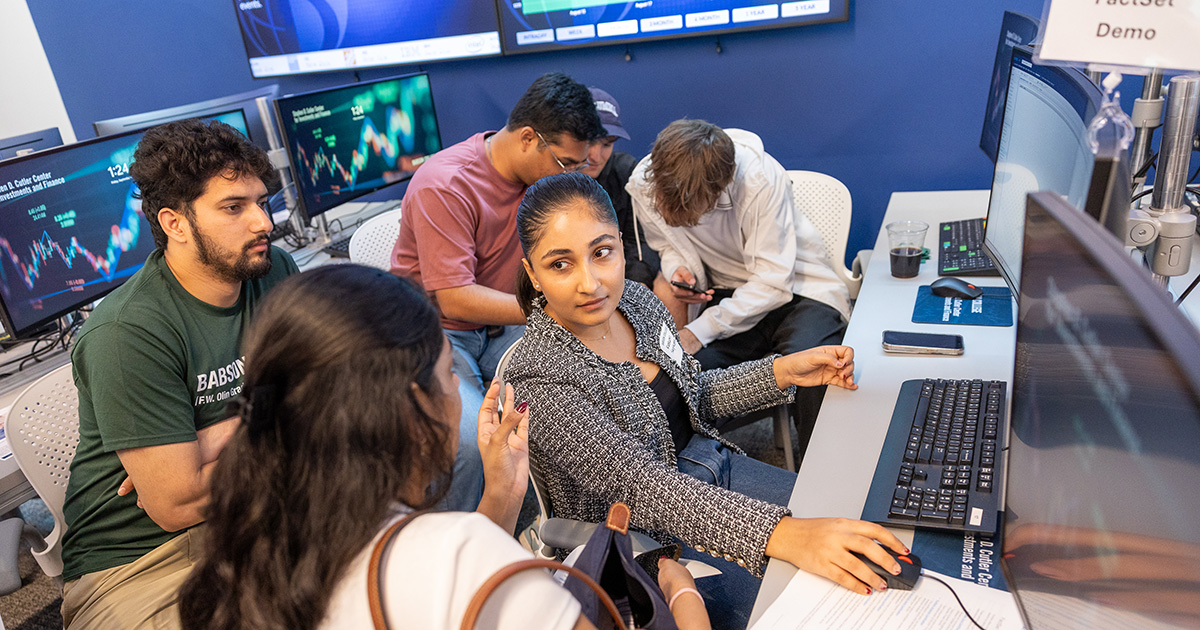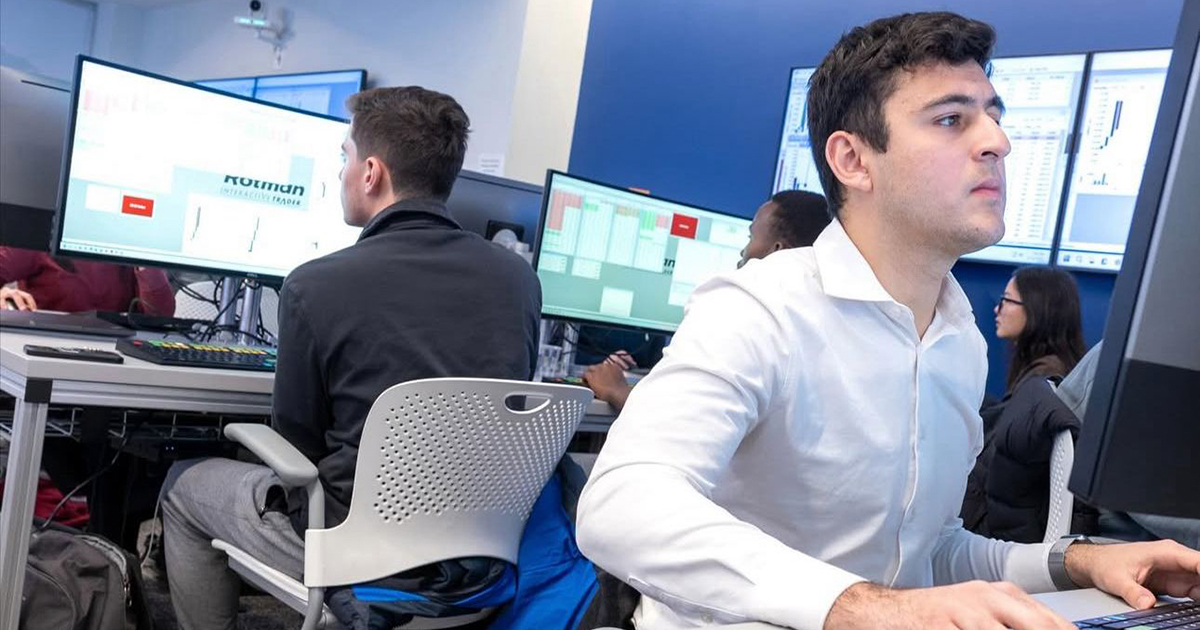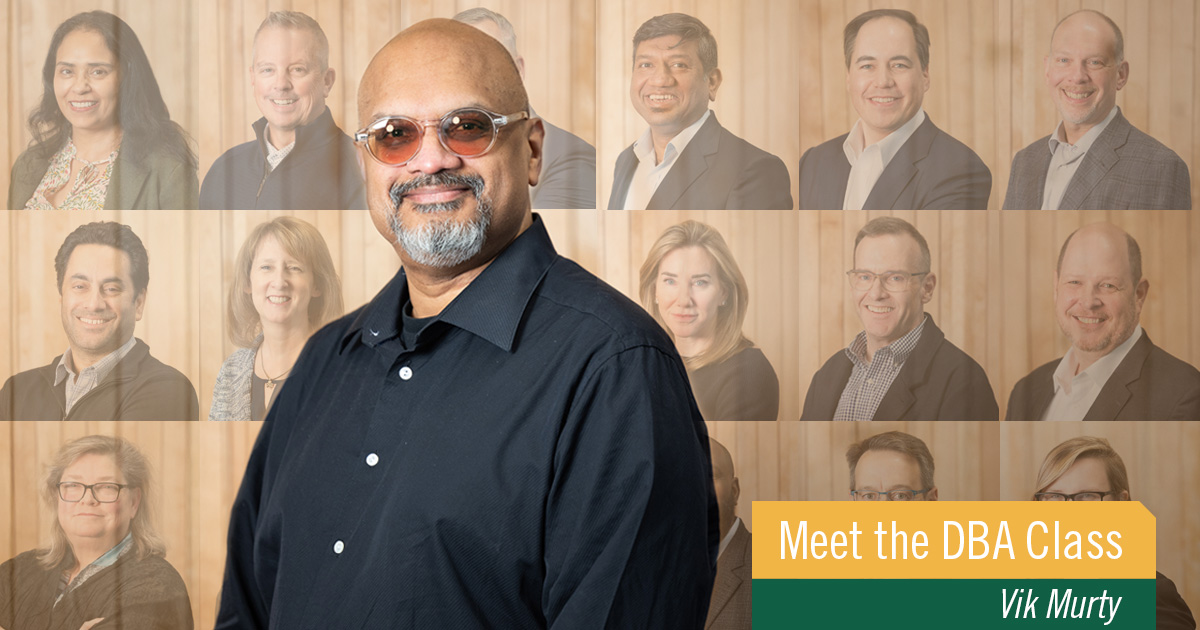In Ukraine, He Teaches a Critical Skill: Entrepreneurship
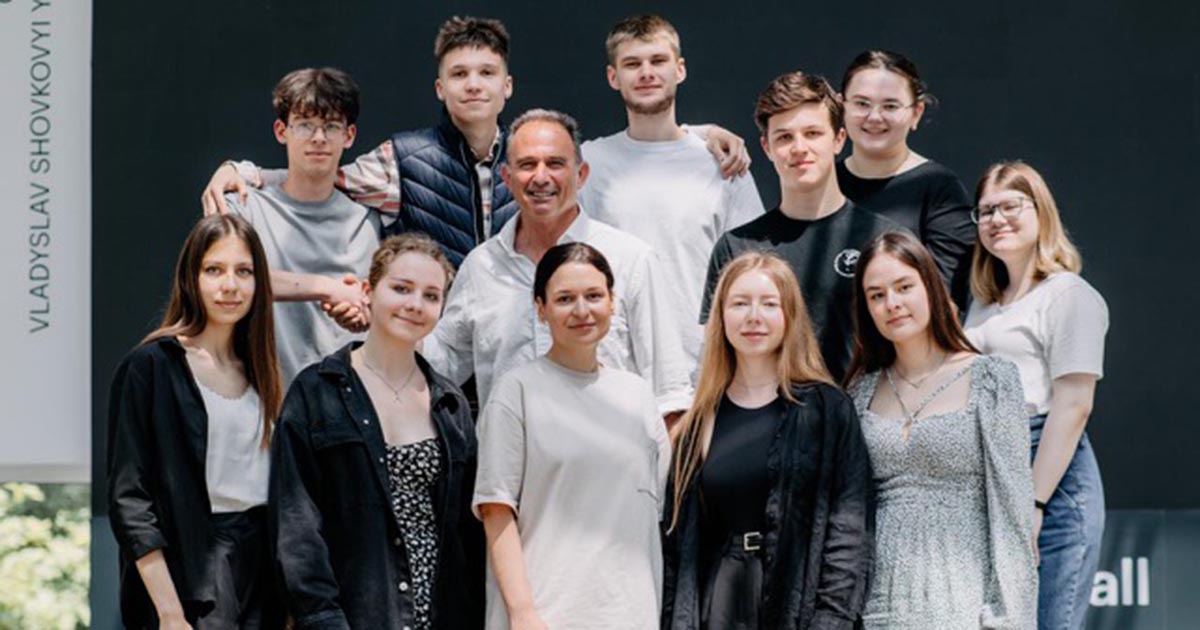
When the air raid sounds in the middle of class in Kyiv, Ukraine, the learning goes on.
Tony Harris MBA’91 recently taught a course on social entrepreneurship at the Kyiv School of Economics. During air raids, his class would adjourn to the shelter in the building’s basement, which was set up like a classroom, with a whiteboard, desks, chairs, and Wi-Fi. Harris would pick up his lesson right where he left off.
“There is no panic,” Harris says. “The class continues. You don’t even mention the air raid. You just carry on talking.”
Wartime Ukraine is the latest stop for Harris in his long career in education. A traveler who likes to “roll up his sleeves” and go where he is needed, Harris has taught entrepreneurship and developed entrepreneurship programs in a host of countries around the world, such as the U.S., the U.K., Slovakia, South Africa, Saudi Arabia, and China. The high schools and colleges he has worked with include Babson College, his alma mater where he is a Senior Fellow in the Institute for Social Innovation.
Entrepreneurship can empower people, Harris says. That’s why he is drawn to teach it. “Entrepreneurship, and particularly social entrepreneurship, is an effective and powerful way to drive change,” says Harris, who is based in Switzerland. “It gives people the tools to solve problems, speak truth to power, and find meaning in their own lives.”
Tough Students
Harris wasn’t always so focused on education. When he began pursuing his MBA at Babson in 1989, he was working for a small management consulting firm, and he had every intention of returning to that field.
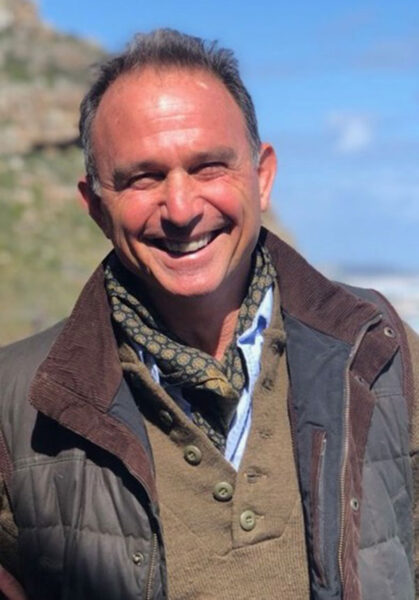
Tony Harris MBA’91 serves as a Senior Fellow at Babson’s Institute for Social Innovation.
Then he met Ralph Z. “Bud” Sorenson H’85, who served as Babson’s seventh president from 1974 to 1981. Harris was struck by Sorenson’s wisdom and accomplishments, including his overseeing of Babson’s embrace of entrepreneurship education in the 1970s. “I was impressed,” Harris says. “He inspired me to formally go into education.”
When an opportunity arose to run a small startup MBA program in London right after his final exam, Harris took it. “I went over to London, and the adventure began,” he says.
Today, Harris is the founder and managing partner of Redstelvio Associates, a education consulting firm working with new and established schools all over the world, designing and developing entrepreneurship courses and programs.
He also is a lecturer in entrepreneurship in Kyiv. Harris spent a month teaching there in the spring, and he found life in the city to be both challenging and mundane, as well as a bit surreal. Despite frequent missile and drone attacks, life continues, with people out walking around, pushing strollers, strolling with dogs.
When an air raid sounded while he met with fellow faculty in a café, the workers went on serving, and his colleagues preferred to stay put instead of hustling to a shelter. “If we have to go downstairs every time there is an air raid,” they told him, “we would never get any work done.” An avid rower, Harris even took time to go on the water one day and found others in racing shells training.
Given what students are facing in the country, Harris admits that teaching them core entrepreneurial tenets such as dealing with uncertainty can seem unnecessary. “It would be preposterous to presume to teach Ukrainians about flexibility, resilience, or nimble thinking,” he says.
“Entrepreneurship, and particularly social entrepreneurship, is an effective and powerful way to drive change. It gives people the tools to solve problems, speak truth to power, and find meaning in their own lives.”
Tony Harris MBA’91
Still, there is much to learn, especially considering that Ukrainian students are used to lectures without much interaction or debate with their instructors. Class discussion, in which they are asked to offer their opinions, gives them pause, though not for long. “They are tough kids,” Harris says. “They may not have had electricity the night before. Many students were from the southeastern part of Ukraine, which was overrun. They can handle discussion.”
Lessons land differently in Ukraine. Harris was struck by the class’ reaction when teaching a classic business case about articulating and prioritizing goals. Students came to conclusions he hadn’t heard before. “I have taught this case countless times,” he says, “but never in a war zone and never were the lessons of this case more stark.”
What Comes Next
Harris also keeps busy with his work for Babson. He serves as one of the Senior Fellows, a group of advisors who share their experiences and knowledge with the College community.
Harris is exploring the launch of an Education Lab at Babson, which will aim to respond to looming disruptions in education such as A.I. “All universities and schools need to think hard about how they will operate in the future,” he says. Additionally, he is looking to see how Babson can expand its entrepreneurial offerings to pre-college students.
Looking ahead, Harris hopes to return to Ukraine to teach entrepreneurship again, even if a grueling 17-hour overnight train ride from Poland is the main way outsiders enter the country. “It is not an easy place to get to,” he says.
Ukraine faces a dangerous present and an uncertain future, he says, and entrepreneurial leaders will be critical to guide whatever comes next.

